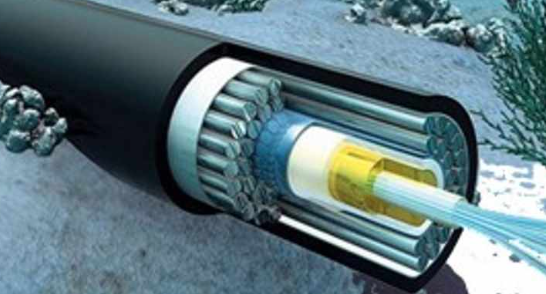2Africa, an international subsea cable (submarine telecommunications cable) which aims to expand internet connectivity and help boost Africa’s digital economy, has recently landed in Durban, South Africa.
The massive subsea cable, which landed in Durban, KwaZulu-Natal, is the latest after landing in December and January, at other locations in the country: Vodacom network facility in Gqeberha, Eastern Cape, Yzerfontein and Duynefontein, Western Cape.
At 45,000 kilometres, the 2Africa cable system becomes the longest subsea cable system in the world connecting 3 continents: Europe, Asia and Africa.
The cable will connect 33 locations at 46 locations across Africa, Europe, and Asia once it’s complete. Alcatel Submarine Networks (ASN) will manufacture and deploy the 180Tbps cable, due for completion in 2024.
Enabling communication speed up with a carrying capacity of 180 TBps (terabytes per second), West Indian Ocean Cable Company (WIOCC), the company in charge of the project, said the project is aimed to connect the African continent, enabling its communication speed up.
The company’s group chief operating officer Ryan Sher said: “It enables communication, speeds it up and adds volume to the amount of communication that Africa has. Ultimately, it enables industry and builds the economy.”
WIOCC Group CEO, Chris Wood, said: “This latest major international cable landing is another example of WIOCC Group playing a key role in building Africa’s digital infrastructure and accelerating the continent’s digital transformation through the delivery of converged open digital infrastructure.”
Read also: Google Subsea Cable to Bring Better Internet Connectivity to Nigeria
The international subsea cable to provide economic and social benefits
With a good internet speed, the project comes with enormous benefits from education to health care and businesses, providing economic and social benefits with increased connectivity.
First announced in May 2020, 2Africa planned to bring seamless international connectivity to billions of people. WIOCC said the cable would help industries come together in an ecosystem that would benefit Africans.
“This is the foundation of the digital economy and helps move us forward as a continent. A country cannot be without the internet for weeks, so what’s needed are multiple cables to … create a rich, always-on ecosystem.” Ryan Sher, WIOCC COO said.
He said the new-generation cables are open-access and – unlike the older cables that ran in monopoly landing stations – are not restricted to interconnect costs. He said cable was not limited to one operator in each country.
Once the system has been fully deployed, businesses and consumers in Africa will benefit from improved quality, reliability and lower latency for internet services.
With more capacity there’d be lower prices and increased speeds. Having more capacity enables more applications, cloud services, streaming services and a world of creative applications on the internet.
It will potentially increase regional job creation in sectors that rely on direct international connectivity, such as data centres, call centres and software development.
“We are pleased to be working with our partners in the 2Africa project, bringing faster, more reliable internet to local businesses and consumers, and making an enduring contribution to communications in Africa. The subsea cable system is enabling more communities to access transformative online resources, from education and healthcare to jobs and financial services, and experience the economic and social benefits of seamless connectivity.” Chris Wood, WIOCC CEO said.
Connecting over 3 billion people
The 2Africa consortium, comprising of China Mobile International, Meta (Facebook), MTN GlobalConnect, Orange, STC, Telecom Egypt, Vodafone and WIOCC, is estimated upon completion to connect over 3 billion people of the world’s population when it goes live this year.
The undersea cable connection also has landing locations in Oman (Barka), UAE (Abu Dhabi and Kalba), Qatar (Doha), Bahrain (Manama), Kuwait (Kuwait), Iraq (Al-Faw), Pakistan (Karachi), India (Mumbai) and Saudi Arabia (Al Khobar).
